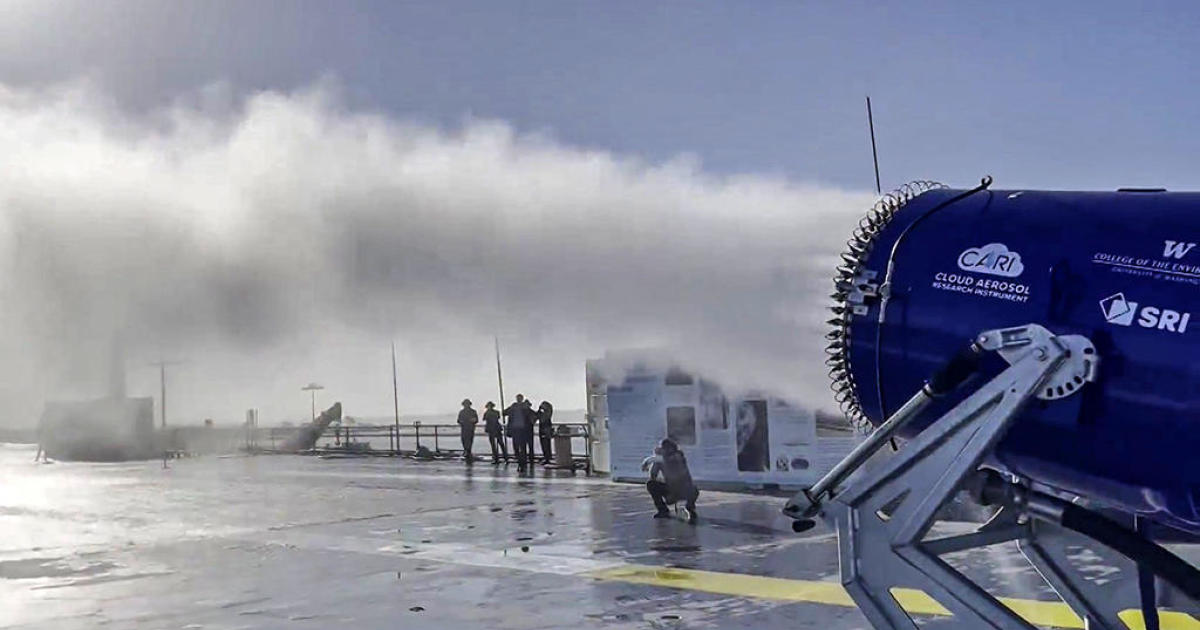Last month, the City of Alameda blocked scientists from continuing basic research into an experimental approach that may, one day, slow global warming.
The research was being done by atmospheric scientists from the University of Washington, and a nonprofit called SilverLining. SilverLining is funded by a consortium of philanthropic foundations and individual donors. Despite the researchers' credentials, the city council remained skeptical and voted unanimously to halt the work.
"We need to know more about this before you come to our city and start these experiments," concluded Alameda Mayor Marilyn Ezzy Ashcraft.
Marine cloud brightening is a scalable potentially majorly helpful mitigation strategy to keep us from going completely off the tipping points rails and this dip shit city council said you can't do research because you haven't done enough research



Nuclear power produces a lot of water vapour.
I feel like it is (or at least was) a no-brainer:
Draw in seawater
Run it through reverse osmosis if necessary under certain operating conditions
The waste brine from RO can be captured and processed, like you have mentioned
Use nuclear to provide for the baseload generation requirements, running an excess of power
Use renewables in whatever way is suitable, also run an excess of electricity generation
Capture the steam from the nuclear power plant and use this for clean water needs
Excess power can be used to produce clean water via a nearby desalination plant and it can be adjusted to balance the load, reducing production to manage load shedding (waste brine to be repurposed as mentioned above)
Desalinated water goes into the reactor for cooling purposes and gets recaptured on its way out
Brine to be repurposed as a potential global dimming/climate change reduction measure
Not to get all thermohaline on everyone but water vapour is a major greenhouse gas. I'm uncertain of whether nuclear power is a non-negligible source of water vapour (it probably is negligible) but if you have a better place to capture the waste heat to and/or to capture the water vapour in a way that doesn't significantly impact efficiency then why would you dump it into the atmosphere and make mother nature take yet-another one for the team, y'know?
Of course this would require a vast infrastructure project and it would require the right location but if you created a major reservoir in the right location you'd also be able to use it for hydroelectric power. Whether it would be on the scale of the Three Gorges or Hoover dams idk but having an additional source of energy via pumped storage (arriving via a scenic route) means that you'd potentially be able to manage unexpected spikes in the load in the electricity grid as well as helping to preserve aquifers and providing for water demands.
Note that this is also much more like solar(?)punk spitballing than it is anything approaching a legitimate engineer-developed project so there's no doubt that real world operating constraints would limit this, perhaps in a lot of ways, but it really does seem like it would a holy grail of meeting the demands of modern civilization:
Fresh water
Electricity generation
Multiple ways to store/use excess electricity and to balance the load, thus turning the problem of inconsistent renewable energy generation into a boon
The potential for additional energy-storage or energy-capture via harnessing the heat produced and by generating stored energy (e.g. producing hydrogen for fuel cells, ammonia for export either as liquid fuel or as a base for fertilizer, or using more exotic forms of energy storage.)
Feels like this would be perfect especially for places like Australia, some parts of South America, definitely South & West Asia, and of course Africa.